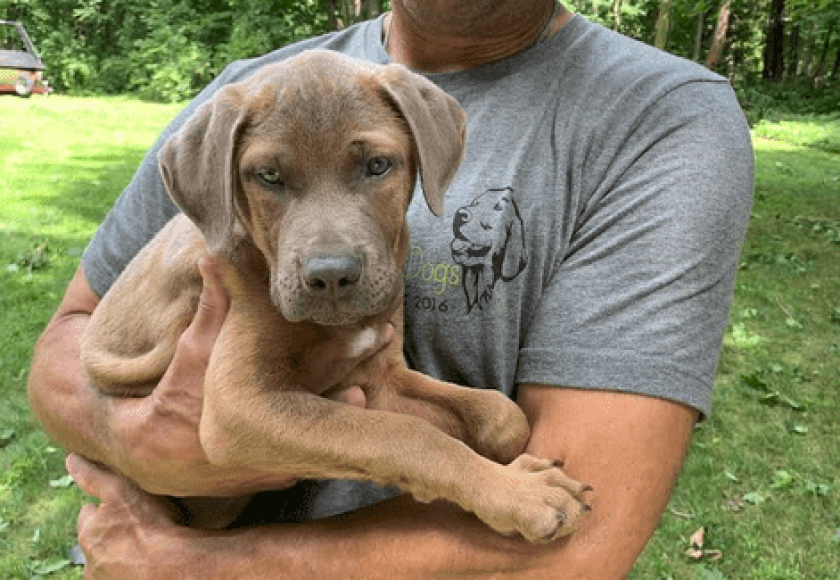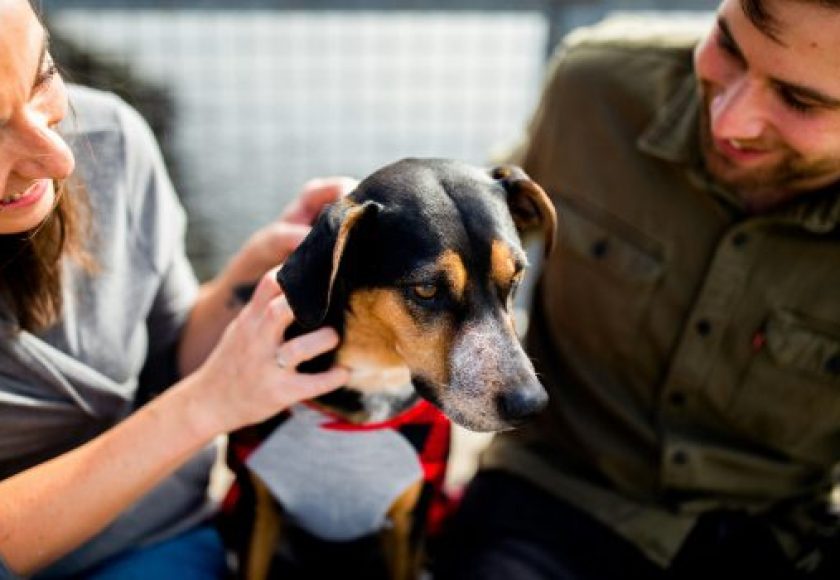When Progress Feels Like It’s Going Backward
You taught the sit. You mastered the stay. You celebrated that first perfect public outing.
And then—out of nowhere—your puppy-in-training starts pretending they’ve never heard of manners. Or potty training. Or you.
You might even be wondering: Did I do something wrong? Is this normal?
Sound familiar?
Welcome to the world of puppy training regressions. Whether you’re a volunteer puppy raiser or the proud recipient of a service dog, these temporary backslides can feel like a personal betrayal. But rest assured: they’re not only normal—they’re expected—within reason.
Just like toddlers testing boundaries or teens forgetting how to be human, puppies (and even grown service dogs) occasionally forget their training or need a reminder. The good news? With a little patience, structure, and perspective, you’ll both come through it stronger.
In this post, we’ll explain why regressions happen, what to look out for, and how to get things back on track—without losing your cool (or your sense of humor).
What is a Puppy Regression?
A dog training regression is a temporary loss of skills or behavior reliability that your dog had previously learned. It might show up as:
- Ignoring cues like “sit” or “stay”
- Becoming reactive in public
- Pulling on leash after weeks of improvement
- Suddenly struggling with potty training again
While frustrating, regressions are a normal part of a dog’s learning and development. They don’t mean your dog is failing or unsuitable for service work. In fact, they often provide a great opportunity to reinforce important skills and strengthen your communication as a team.
Common Causes of a Puppy Regression
Let’s look at the most common causes behind training regressions in puppies and service dogs.
1. Developmental Milestones
Dogs go through key developmental phases, especially during adolescence (typically between 6 and 18 months). During this time, hormonal shifts, increased independence, and distraction sensitivity can all make previously learned behaviors less reliable.
2. Inconsistent Handling
Service dogs-in-training interact with multiple people—volunteer raisers, trainers, weekend relief caregivers, and eventually their recipient. If cues, expectations, or reinforcement vary too much from one handler to the next, regression is likely.
3. Environmental Stress
A new environment, vacation, vet visit, or shift in household dynamics can cause temporary setbacks. Even a loud thunderstorm can create stress that affects behavior.
4. Health-Related Issues
If your dog suddenly starts having accidents indoors or refuses to follow cues, don’t rule out a medical issue. Infections, digestive issues, or pain can all impact behavior.
5. Lack of Stimulation or Routine
Service dogs thrive on structured routines and consistent engagement. Long periods without mental or physical activity can cause boredom—and with that, unwanted behaviors.
A Quick Note About Potty Training Regression
Even puppies that have been consistently eliminating outside can experience potty training regression, especially during adolescence, routine changes, or stress. It’s frustrating—but completely normal.
Here’s how to respond the Putnam Service Dogs way:
- Reinforce the routine. Keep a consistent schedule for feeding and potty breaks. Puppies should go out after sleeping, playing, eating, or drinking—plus every couple of hours.
- Supervise or confine. If you’re not watching the puppy, she should be either tethered to you or confined to a crate. This prevents accidents and reinforces good habits.
- Watch for early signals. Circling, sniffing, wandering off, whining—these are signs your pup needs to go. When in doubt, take them out!
- Use the “Get Busy” cue. Take the pup to the same spot, wait calmly, say “Get Busy” as she squats, and reward after she finishes.
- Log potty events. Track successes and accidents to learn your puppy’s natural rhythm and prevent future mistakes.
- Don’t punish accidents. If you catch her mid-accident, calmly redirect her outside. If you find it later, clean it and move on—she won’t connect it to her earlier behavior.
Remember, bladder and bowel control take time to develop. Some pups will be mostly reliable by 4–6 months, while others might not be 100% until 8–12 months. And just when things seem perfect, adolescent regressions can kick in. It’s all part of the process.
How to Work Through a Regression Successfully
The most important thing to remember? Don’t panic, and don’t assume it’s permanent. Here’s how to handle regressions with calm and consistency:
- Go back to basics. Reinforce core skills (sit, stay, heel) in low-distraction environments.
- Use positive reinforcement. Praise and reward what your dog gets right. Confidence builds progress.
- Be consistent across handlers. Make sure everyone involved is using the same cues and expectations.
- Keep training sessions short and structured. 5–10 minutes of focused work goes a long way.
- Track patterns. Logging behaviors and possible triggers can help uncover the cause of regression.
- Reach out for support. The team at Putnam Service Dogs is here to help guide volunteers and recipients through these phases.
It Takes a Village: Supporting a Service Dog’s Success
Every service dog’s journey depends on a strong, consistent support system. Behind every highly trained dog is a community of people—each playing a vital role in their growth, confidence, and reliability. From daily training to weekend care, it truly takes a village to keep a future service dog on track.
- Volunteer puppy raisers give dogs the foundation they need to succeed.
- Weekend and vacation relief volunteers ensure training doesn’t fall through the cracks when life gets busy.
- Donors provide the resources for expert guidance, training tools, and support when setbacks occur.
Even when regressions happen—and they will—this network ensures dogs get the consistency and reinforcement they need to move forward.
Want to Help a Service Dog Succeed?
Whether you can open your home or your heart, there’s a place for you in this mission:
- Become a Volunteer Puppy Raiser – Be part of a dog’s first and most important chapter.
- Offer Weekend/Vacation Relief – Help a pup stay on track while their full-time raiser takes a break.
- Donate – Your support funds the training, structure, and support needed to handle setbacks and celebrate success.
FAQs About Dog Training Regressions
What are dog training regressions?
Dog training regressions are temporary setbacks in a dog’s learned behaviors. A dog may stop following cues or revert to earlier habits like accidents indoors.
Why do puppies regress in training?
Puppies often regress during developmental phases, due to stress, inconsistent training, or environmental changes.
How do I fix puppy training regression?
Reinforce basic behaviors with short, consistent training sessions and positive reinforcement. Keep a routine and stay calm.
What causes potty training regression in dogs?
Stress, new environments, schedule changes, or health issues can all trigger potty training regressions—even in previously reliable dogs.
Is regression normal in service dogs?
Yes. Even highly trained service dogs experience regressions. With support and consistency, they bounce back quickly.






